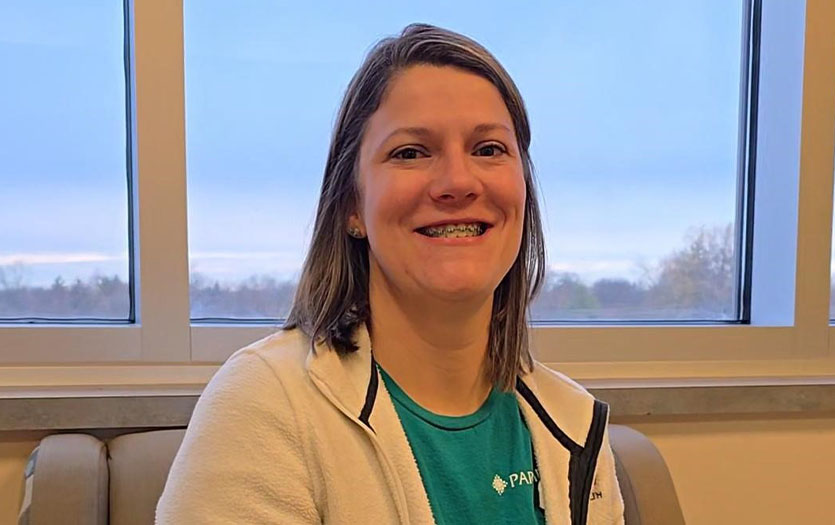
This post was written by Fen-Lei Chang, MD, PPG – Neurology.
Dementia is a condition in which a patient experiences a deterioration in their memory, thinking and/or behavior that impairs their ability to carry out everyday activities. According to the World Health Organization, the syndrome affects around 50 million people worldwide. While all cases of dementia are not categorized as Alzheimer’s disease, it does make up a significant amount, up to 70% of cases.
During the COVID-19 pandemic, dementia patients are experiencing more challenges than ever before. Changes to their routine, communication and socialization can make symptoms harder to manage. But knowledge is power. Let’s take a closer look at the risk factors, some of the unique obstacles weighing on this population and their caregivers, and possible remedies, as well as the keys to prevention.
Risk factors
While age can be a risk factor for dementia – a vast majority of dementia patients are 65 or older – the condition is not a normal part of the aging process. Other risk factors include chronic conditions such as diabetes, hypertension or other cardiovascular disease and obesity. In a small subset of patients, genetics are a factor.
Signs and symptoms
The early signs of dementia are related to short-term memory impairment. You might notice yourself or a loved one repeating statements or questions. They might show a lack of insight, or changes in personality or personal hygiene.
For example, a loved one might ask what time their appointment is. You provide an answer and they ask again just 10 minutes later. It’s an inability to retain information in the short term.
Typical progression
In usual social circumstances, dementia will progress over years. If the condition is getting worse over weeks or just a few months, that is not typical.
Treatment
We’ll often see people in the clinic who have fairly progressed cases of dementia. People get used to the changes they’re experiencing and neglect to seek treatment. Most patients assume that it’s just a normal part of aging, but that’s not necessarily true.
While everyone’s level of concern is different, I would recommend a patient or loved one consult with a physician as soon as they become worried about the cognitive changes they are seeing. The diagnosis might not be dementia, but it’s best to check. Continued worry is never a good sign.
Treatment typically involves managing the lifestyle factors that contribute to the chronic condition. This includes getting adequate exercise, both physical exercise and cognitive exercise. It also includes stress management, proper sleep hygiene and a healthy diet heavy on fruits and vegetables with reduced processed foods and red meat.
We can’t talk about dementia without talking about socialization. Social interaction and a routine are key to managing dementia.
The impact of COVID-19
For patients with mild-to-advanced dementia, there are several factors impacting their condition during the pandemic. First, because of some of the deficits associated with dementia, this population is at an increased risk of getting the virus. As much as we try to emphasize the importance of mask wearing and social distancing, it can be difficult for dementia patients to remember to practice these protective measures.
Second, they are experiencing limited social interaction, which is very significant for these individuals. In some cases, they can only wave at loved ones through a window. That isolation affects them greatly, particularly if the condition is more advanced. It would affect anyone! It doesn’t make sense to them. They wonder what’s going on and why they’re being punished. They don’t understand these are measures to protect them. The isolation is compounded by stress which is compounded by anxiety which is compounded by a depressive mood.
Additionally, because of COVID, people are putting off appointments. This impacts early detection and diagnosis, which can impair condition management. If you have concerns, it’s imperative that you seek treatment.
And finally, changes to sleep patterns, eating habits and movement impact the management of the aforementioned chronic conditions that put people at risk for dementia or for worsening dementia. It’s important to get plenty of good sleep, maintain proper nutrition and get in plenty of physical activity. Stress management is also key.
Addressing symptoms
While there is light at the end of the tunnel regarding the pandemic, I highly recommend those who qualify get the COVID vaccine. This includes dementia caregivers. This will help protect both parties so that they can hopefully get back to a somewhat normal form of socialization. The benefits of the vaccine far outweigh any potential side effects.
Routine and familiarity are good for dementia patients. Many care facilities are centered around this very concept. Change can be very scary for this population. As much as possible, doing things that are familiar and adhering to a routine is beneficial for this group.
Dementia patients can benefit from contact in the form of video chats, but it’s important to remember that technology can be very challenging for them. Make sure someone is available to help them get logged in and address their concerns to avoid frustration. In-person is best, but any type of social interaction is beneficial.
COVID long-hauler symptoms
For those who have had COVID-19, it’s important to be aware of that transition to post-COVID wellness. For both those with dementia and those without dementia, the virus can present additional symptoms following the illness. This could be psychiatric, like worsening anxiety or depression, or neurological, such as headaches, confusion, brain fog or an accelerated decline in memory functions.
Anyone who notices these symptoms either worsening or persisting for longer than four weeks should make their physician aware. There are many implications for mental, cardiovascular, pulmonary and neurological health, including but not limited to stroke and blood clot risk, myocarditis and POTS. This is of course the body’s response to increased inflammation. All symptoms need to be respected and addressed with your caregiver to avoid further complications.
Prevention
To prevent dementia, it’s important to manage risk factors for chronic conditions. Manage stress, eat a healthy diet, exercise and get proper sleep. Dementia isn’t 100% preventable in all cases, but making smart lifestyle choices can certainly improve your odds and the impact of the condition on your everyday life.



